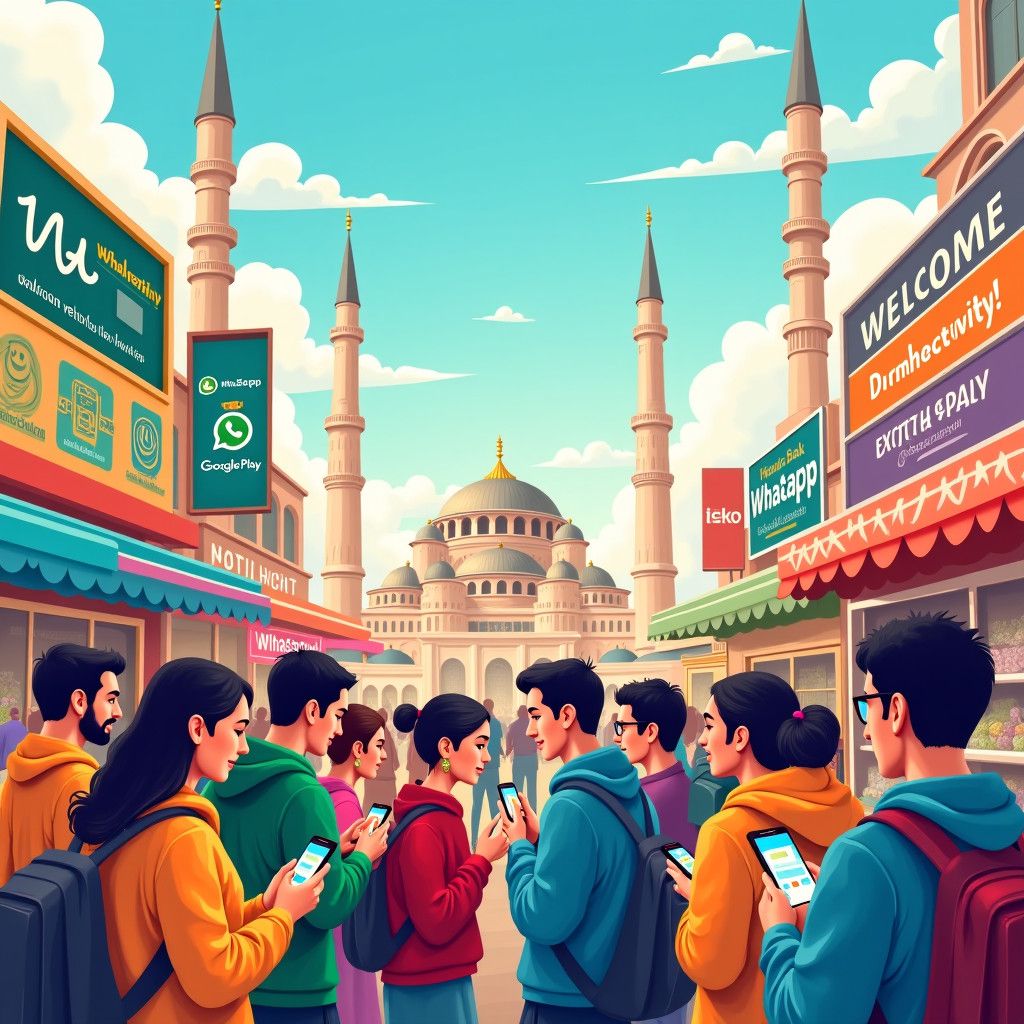In a significant move towards digital openness, Iran recently announced the restoration of access to popular applications such as WhatsApp and Google Play. This decision marks a pivotal change in the country’s internet policy, which has been characterized by strict censorship and limited access to various online platforms. Understanding the implications of this action requires an examination of Iran’s previous online restrictions, the context behind the recent changes, and potential effects on its citizens.
For several years, Iran has faced scrutiny from human rights organizations regarding its approach to internet governance. Authorities have implemented numerous restrictions on social media platforms, messaging apps, and websites. Notably, WhatsApp was blocked back in 2019 following protests against the government. In a similar vein, Google Play was inaccessible to the public, limiting access to essential applications and software updates for smartphone users.
The recent reinstatement of these services coincides with a series of reforms aimed at enhancing digital freedoms. For instance, amid national and international pressures, the Iranian government has started to appreciate the essential role of digital communication for its citizens. This shift indicates a recognition that connectivity can foster dialogue, facilitate access to information, and potentially aid in economic activities.
Many observers believe that this change may be driven by the need to improve the government’s image, both domestically and internationally. By restoring access to familiar platforms, Iranian officials may be attempting to quell public unrest and dissatisfaction. This approach aligns with previous historical instances, where responses to civil discontent have included increased access to communication tools, albeit temporarily.
From an economic perspective, the restoration of services like Google Play has several implications. With access to a broader range of applications, Iranian developers and entrepreneurs can now leverage modern technology to innovate and create new business opportunities. This can ultimately boost the local economy, which has struggled due to economic sanctions and internal policies hampering growth.
Furthermore, the ability to access educational resources and professional development tools through these applications could enhance the skill set of the Iranian workforce. The implications for entrepreneurship are noteworthy; applications related to e-commerce, fintech, and online marketplaces can thrive in a more open digital environment, potentially leading to a resurgence in local businesses.
However, the restoration of these services does not imply a complete overhaul of the existing censorship framework. The Iranian government is known for its selective approach to internet governance, and it remains proactive in controlling content deemed politically sensitive or threatening to national security. This strategic balance aims to maintain a semblance of control while accommodating the growing digital demands of its populace.
Internationally, this development piques the interest of analysts who study Iran’s compliance with global norms regarding internet freedoms. Organizations like Amnesty International and Human Rights Watch have long called for greater digital rights in Iran. By partially adopting a less restrictive policy, the Iranian government might be looking to alleviate some global criticisms while continuing to pursue its socio-political agenda.
Nonetheless, the restoration of WhatsApp and Google Play has been met with cautious optimism among the Iranian population. Social media users are eager to explore the possibilities offered by these platforms after years of limited access. As citizens engage with these services, the potential for civic engagement could increase, leading to more vibrant discussions on national issues.
The Iranian case illustrates the complex relationship between governments and digital platforms in the modern age. While the restoration of access represents a step towards online freedom, the journey ahead is fraught with challenges. Citizens remain vigilant, aware of the continued threat of censorship and limited freedoms, seeking to balance connectivity with the realities of state control.
In conclusion, Iran’s decision to restore access to WhatsApp and Google Play symbolizes a noteworthy change in its digital landscape. As users reconnect with these platforms, the impact on communication, economic development, and social interaction will unfold over time. The world watches as Iran navigates these transitions, hoping for a sustainable path towards broader digital rights and freedoms.












